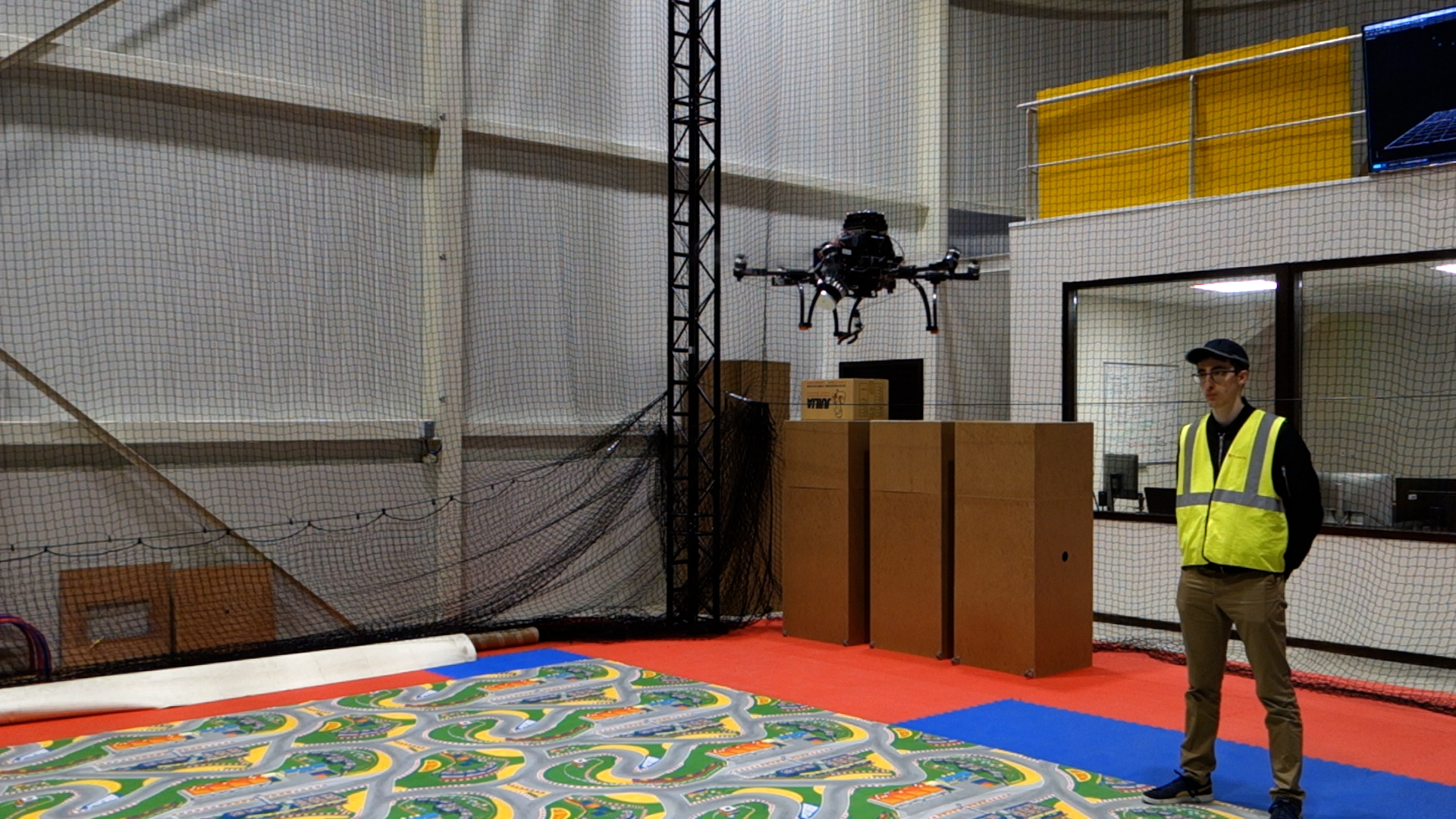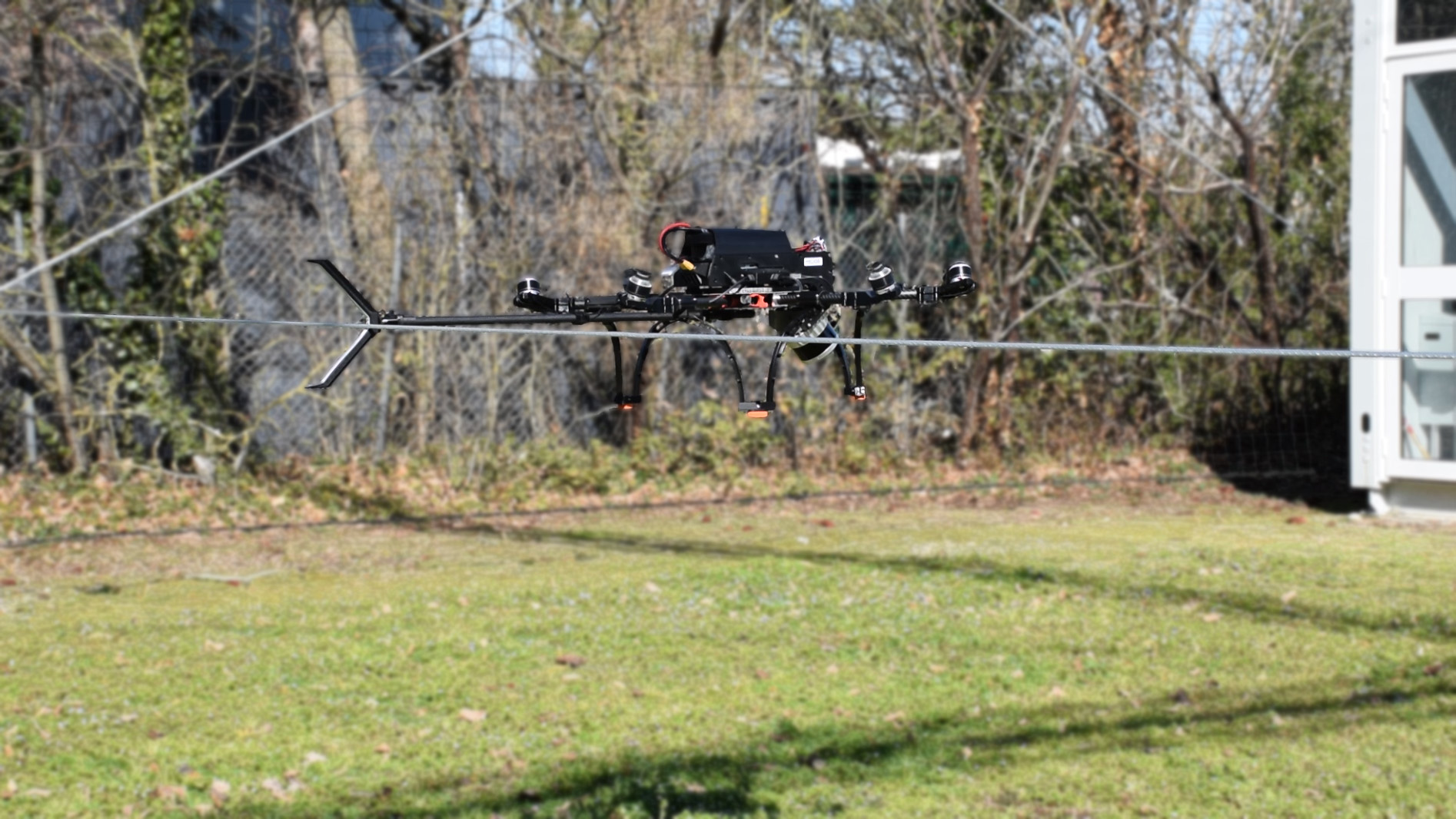Donecle specializes in autonomous drone technology and joined the AERIAL-CORE project in 2020
Already dedicated to providing safe, efficient, and innovative drone solutions with its aircraft inspection technology, Donecle joined this European initiative to collaborate with other key players in the drone industry and further advance the field of drone operations. Through its participation in the Aerial-Core program, Donecle continues to share its expertise and contribute to cutting-edge research, ultimately enhancing the safety and reliability of drone technology. The Aerial-Core project is a research effort to develop advanced aerial robotic systems that are lightweight, agile, and efficient, for tasks such as infrastructure inspection and environmental monitoring.
More about AERIAL-CORE: https://aerial-core.eu/.
Automated Aerial Co-Worker
As part of the Aerial-Core consortium, Donecle is developing an Aerial Co-Worker (ACW), a platform with novel cognitive and control abilities, that collaborates and interacts with operators to assist in powerline inspection and maintenance. Key applications include tool delivery and collection services to the worker at heights and contact-based voltage measurements.
The Aerial Co-Worker is a hexacopter with tilted rotors, making it a fully actuated system. Full actuation is crucial for interaction tasks, as it allows for precise and independent control of both position and orientation. For each of the two applications, a specialized payload can be integrated on the Aerial Co-Worker.
The challenges of this project include:
- Maintaining physical contact with a structure or an operator while executing a task (e.g., measuring voltage, handling a tool);
- Positioning the drone with respect to other co-workers, both robots and humans, while ensuring their safety;
- Communicating intentions and orders to the Aerial Co-Worker.

Tool delivery

Powerline voltage check
To meet these challenges, Donecle has integrated cutting-edge algorithms into the Aerial Co-Worker:
- Gesture recognition developed by the Aristotle University of Thessaloniki;
- Physical interaction control laws developed by the University of Twente.
Having successfully demonstrated the main features of the Aerial Co-Workers (gesture recognition, tool delivery, contact with a cable) in laboratory conditions, the next step is to test it in real-world conditions in the ATLAS facility, located near Sevilla, Spain.
More about ATLAS: http://www.catec.aero/en/atlas.
